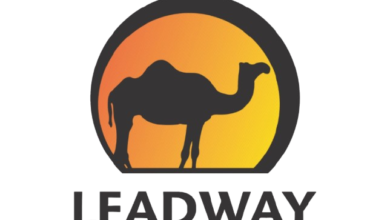How Insurers Can Prepare For AI Disruption In Business By 2030

Mr. Olusegun Omosehin, Commissioner For Insurance, Nigeria
By EDET UDOH
It is no longer news that the rapid evolution in the insurance industry will be fueled by the extensive adoption and integration of automation, deep learning, and external data ecosystems otherwise known as Artificial Intelligence (AI). While no one can predict exactly what insurance might look like in 2030, experts advised that operators should take several steps now to prepare for the change.
According to a Senior Partner at McKinsey and Director of its Global Institute, Kweilin Ellingrud, the technology is set to bring about “12 million occupational transitions” between now and 2030.
He said this while speaking at the firm’s media in June 2024.
Some areas that will see growth, according to Ellingrud include roles in healthcare and STEM. He said About 85% of the jobs that AI will likely impact, meanwhile, fit into four categories — administrative assistance, customer service and sales, food service, and production and manufacturing, according to McKinsey.
Many of those jobs, he said, involve repetitive work, data collection, and elementary data processing, all of which could be handled by automation, according to a McKinsey report co-authored by Ellingrud. The report estimated that about 11.8 million workers in roles with shrinking demand will need to move into new lines of work by 2030.
In this case, the insurance industry is not exempted, therefore, since the industry will be technology-focused, it will not be possible that the evolving changes that will come with the adoption of AI will be addressed by the IT team alone; so there is need for board members and marketing teams to invest their time and resources to build understanding of AI-related technologies, even as they are also expected to learn how to use technology to support their business strategies.
McKinsey in its article titled “Insurance 2030—The impact of AI on the future of insurance, urged Insurers to develop a perspective on areas they want to invest in to meet or beat the market and what strategic approach they want to explore —for example, forming a new entity or building in-house strategic capabilities that are best suited for their organization.
In Nigeria, insurance professionals are gearing up for knowledge acquisition and skill enhancement in various aspects of information and communication technology, especially in AI to remain effective and relevant in the industry before 2030, a time expected for all businesses to be fully automated.
For an effective, efficient and seamless implementation of AI-focused operations, experts have identified four core elements in defining a successful AI strategy. The four elements are: Building In-House Strategic Capabilities; Creating And Implementing A Coherent Strategic Plan; Aligning your data and AI strategies with overall business goals, and Embracing, Trusting, And Understanding Supporting Technology
Building In-House Strategic Capabilities
Although the shifts in the industry will be tech-focused, addressing them is not the domain of the IT team. Instead, board members and customer-experience teams should invest the time and resources to build a deep understanding of these AI-related technologies. Part of this effort will require exploring hypothesis-driven scenarios to understand and highlight where and when disruption might occur—and what it means for certain business lines. For example, insurers are unlikely to gain much insight from limited-scale IoT pilot projects in discrete parts of the business. Instead, they must proceed with purpose and an understanding of how their organization might participate in the IoT ecosystem at scale. Pilots and proof-of-concept (POC) projects should be designed to test not just how a technology works but also how successful the operators might be operating in a particular role within a data- or IoT-based ecosystem.
Building on the insights from AI explorations, operators must decide how to use technology to support their business strategy. The senior leadership team’s long-term strategic plan will require a multiyear transformation that touches operations, talent, and technology.
Some Companies are already beginning to take innovative approaches such as starting their own venture-capital arms, acquiring promising insurtech companies, and forging partnerships with leading academic institutions. Insurers should develop a perspective on areas they want to invest in to meet or beat the market and what strategic approach—for example, forming a new entity or building in-house strategic capabilities in such a way that is best suited for their organisation.
Creating And Implementing A Coherent Strategic Plan
This plan should address all four dimensions involved in any large-scale, analytics-based initiative—everything from data to people to culture. The plan should outline a road map of AI-based pilots and POCs and detail which parts of the organization will require investments in skill building or focused change management. Most importantly, a detailed schedule of milestones and checkpoints is essential to allow the organisation to determine, regularly, how the plan should be modified to address any shifts in the evolution of AI technologies and significant changes or disruptions within the industry.
In addition to being able to understand and implement AI technologies, organisations also need to develop strategic responses to coming macro-level changes. As many lines shift toward a “predict and prevent” methodology, operators will need to rethink their customer engagement and branding, product design, and core earnings. Auto accidents will be reduced through use of vehicles with self-driving capabilities, IoT devices will prevent in-home flooding, buildings will be reprinted after a natural disaster, and lives will be saved and extended by improved healthcare. Likewise, vehicles will still break down, natural disasters will continue to devastate coastal regions, and individuals will require effective medical care and support when a loved one passes. As these changes take root, profit pools will shift, new types and lines of products will emerge, and how consumers interact with their insurers will change substantially.
All of these efforts can produce a coherent analytics and technology strategy that addresses all aspects of the business, with a keen eye on both value creation and differentiation.
Aligning your data and AI strategies with the overall business goals
Data is fast becoming one of the most—if not the most—valuable asset for any organisation. The insurance industry is no different: how industry operators identify, quantify, place, and manage risk is all predicated on the volume and quality of data they acquire during a policy’s life cycle.
Most AI technologies will perform best when they have a high volume of data from a variety of sources. As such, Companies must develop a well-structured and actionable strategy concerning both internal and external data. Internal data will need to be organised in ways that enable and support the agile development of new analytics insights and capabilities. With external data, organisations must focus on securing access to data that enriches and complements their internal data sets. The real challenge will be gaining access in a cost-efficient way. As the external data ecosystem continues to expand, it will likely remain highly fragmented, making it quite difficult to identify high-quality data at a reasonable cost. Overall, data strategy will need to include a variety of ways to obtain and secure access to external data, as well as ways to combine this data with internal sources. Therefore, Insurance Operators should be prepared to have a multifaceted procurement strategy that could include the direct acquisition of data assets and providers, licensing of data sources, use of data Application Programming Interfaces (APIs), and partnerships with data brokers.
Embracing, Trusting, And Understanding Supporting Technology
In augmented chess, average players enabled by AI tend to do better than expert chess players enabled by the same AI. The underlying reason for this counterintuitive outcome depends on whether the individual interacting with AI embraces, trusts, and understands the supporting technology. To ensure that every part of the organisation views advanced analytics as a must-have capability, operators must make measured but sustained investments in people. The insurance organisation of the future will require talent with the right mindsets and skills.
According to McKinsey & Company Financial Services, the next generation of successful frontline insurance workers will be in increasingly high demand and must possess a unique mix of being technologically adept, creative, and willing to work at something that will not be a static process but rather a mix of semi-automated and machine-supported tasks that continually evolve. Generating value from the AI use cases of the future will require users to integrate skills, technology, and insights from around the organisation to deliver unique, holistic customer experiences. Doing so will require a conscious culture shift for most organisations that will rely on buy-in and leadership from the executive suite. Developing an aggressive strategy to attract, cultivate, and retain a variety of workers with critical skill sets will be essential to keep pace.
These roles will include data engineers, data scientists, technologists, cloud computing specialists, and experience designers. To retain knowledge while also ensuring the business has the new skills and capabilities necessary to compete, many organizations will design and implement reskilling programs. As a last component of developing the new workforce, organizations will identify external resources and partners to augment in-house capabilities that will help carriers secure the needed support for business evolution and execution. The IT architecture of the future will also be radically different from today’s. Companies should start making targeted investments to enable the migration to a more future-forward technology stack that can support a two-speed IT architecture.
Rapid advances in technologies in the next decade will lead to disruptive changes in the insurance industry. The winners in AI-based insurance will be those who use new technologies to create innovative products, harness cognitive learning insights from new data sources, streamline processes, lower costs, and exceed customer expectations for individualisation and dynamic adaptation. Most importantly, Companies that adopt a mindset focused on creating opportunities from disruptive technologies—instead of viewing them as a threat to their current business—will thrive in the insurance industry in 2030.
Need For Proper Training For Insurance Professionals
In Nigeria, experts observed that the increasing adoption of technology applications, like Artificial Intelligence (AI) and the recent wave of migration of skilled workforce for greener pastures, otherwise called ‘Japa’ is taking a huge toll on the insurance industry.
According to them, while the adoption of these applications is enhancing service delivery, the human element and experience, which should build confidence for sustainable relationships with customers, are fast disappearing.
This is why the importance of training and retraining of insurance professionals cannot be over-emphasised because human presence is still a critical need to build customer confidence, according to Fola Daniel, chief executive officer, FBS Reinsurance Limited.
Daniel made the observation on the side-line of a training programme anchored jointly by FBS Reinsurance and Munich Reinsurance of South Africa held in Lagos, which aims at addressing technical knowledge gaps in the insurance industry.
He said “A good number of underwriters presently rely on software applications to do their underwriting. Experienced driven underwriting is fast fading away.”
He said, “Of course, in an era of artificial intelligence, there is virtually no subject you cannot interrogate and get an answer for, but you still need experience, as there are aspects of insurance that artificial intelligence cannot do for you.”
“For instance, in marketing; people need to see your face; you need to talk about the company profile. You can do that in prints, but it creates a better impression when they meet you, speak with you and ask questions which answers cannot be obtained from the publications on your website.”
According to Daniel, the purpose of the training, having recognized the knowledge gaps, in the Nigerian and other African markets, is to bridge the technical knowledge gaps, thus impacting the much-needed knowledge.
“I do expect that participants would be better informed. Though, the training is not covering every facet of technical insurance, what we are focusing on is fire insurance, consequential loss and a bit of reinsurance accounting.”
Leadway Assurance Company Limited recently unveiled the “Leadway VehiScanner”, an artificial intelligence-enabled tool available on mobile devices to transform the vehicle assessment process, allowing users to scan vehicles, identify damages, facilitate pre & post loss inspection, get the instant inspection report, and accelerate claims requests processes for policyholders, all done conveniently from their mobile devices.
“With the Leadway VehiScannerAI, we eliminate the tedious and time-consuming traditional vehicle inspection process that requires policyholders to visit physical inspection centres. This AI-powered tool helps the policyholders perform comprehensive inspections remotely and conveniently via their mobile phone and instantly gets a robust result of inspections and areas that require attention”, Tunde Hassan-Odukale, chief executive officer of Leadway Assurance.
As AI-powered tools and algorithms become increasingly prevalent in the insurance sector, they will likely automate many routine tasks and decisions, which could potentially erode the expertise and experience of human executives. This could lead to a shift in the way insurance companies operate, with AI systems taking on more responsibility for data analysis, risk assessment, and policy issuance.
However, it’s also important to note that AI is not meant to replace human judgement entirely. Instead, it can be designed to augment and support the decision-making processes of insurance executives, providing them with more accurate and data-driven insights to inform their decisions.
To mitigate the potential negative effects of AI on executive experience, insurance companies may need to invest in training programs that help their executives develop new skills and adapt to the changing landscape. This could involve teaching them how to effectively work with AI systems, as well as how to interpret and make decisions based on the complex data and analytics that these systems provide.
Ultimately, the key will be to strike a balance between the benefits of AI technology and the importance of human expertise and experience in the insurance industry.
How AI Adoption Will Enhance Growth In Insurance Industry
Artificial Intelligence (AI) adoption by underwriters will trigger a huge leap in insurance adoption penetration in the country before 2030.
Currently, insurance penetration is at 0.4 per cent while about 10.2 million workers have subscribed to Contributory Pension Scheme (CPS) in a country of over 200 million people.
While experts, who spoke at the 8th BusinessToday Annual Conference in Victoria Island, Lagos, applauded insurance operators and regulators for achievements recorded in recent times, they felt this is merely scratching the surface compared to what the industry can pool with AI adoption.
The Theme Paper Presenter who is the managing director/CEO of Cowry Asset Limited, Mr. Johnson Chukwu, disclosed that the uncovered market in both insurance sector show opportunities, especially, in the mass market where it costs more to cover.
According to him, AI is the simulation of human intelligence into a machine format such that the machine can do things that are routine, and faster.
Disclosing that the global average of insurance penetration is about 7 per cent, he said, Nigeria is far behind with its 0.4 per cent even as it also shows there is room for growth.
Using Access Bank as a case study, he said, the bank’s Assets and Profitability far outweigh that of the entire insurance industry in 2023, believing the industry can get to that level in few years to come with the adoption of artificial intelligence, saying, AI remains a compass for organisations to achieve their objectives.
He stressed that, with this technology, the negative reservations that most Nigerians have about insurance and claims payments will be wiped out as it makes insurance policy subscription and claims payments seamless and faster.
The Nigerian Insurance industry, according to Chukwu, will benefit greatly by adopting AI as it will improve their customers’ experience, engender confidence and trust, improve service quality and reduce costs, adding that, AI holds the promise of transforming the traditional insurance landscape by addressing critical challenges, disrupting existing norms, and optimising risk management processes.
“With AI, you can settle claims within some hours or days on motor insurance. No doubt, AI will help in improving claims settlement. AI can harvest records of the insured in terms of making claims, which will enhance accurate pricing of policy and for the insured,” he said.
For Customer Service, he pointed out that, AI tools such as chatbots, a virtual assistants, can help to improve customer experience, saying, Chatbots are available 24/7 to give basic advice, check billing information, and address common inquiries and transactions, as it can be deployed to recapture customers’ data more effectively, even as it can more effectively analysis investment portfolios and recommend necessary actions such as sell, buy, hold, among others.
Advancement in AI, he noted, is underpinned by the drive for convenience and efficiency, which are the two most important competitive tools in the Business World, stating that, businesses and industries that want to remain relevant in the economic ecosystem will therefore need to embrace AI as an integral part of their business DNA
Micro-insurance and micro pension are a mass market. AI will cut the cost of selling insurance for underwriters and pensions for the Pension Fund Administrators (PFAs) as it will improve customers experience, reduce cost, engender confidence in both industries. It is obvious Nigerian insurance industry needs disruption through AI, he emphasised.
Earlier, the president, of the Chartered Insurance Institute of Nigeria(CIIN), Mr. Edwin Igbiti, said that the growing insurance industry will require that the nation’s economy be derisked while seeking partnerships with government and other stakeholders to deepen insurance penetration.
He submitted that AI will increase insurance premium growth, enhance service delivery and ensure the insurance sector contributes more to the nation’s Gross Domestic Product (GDP).
The conference chairman who is the chairman of NEM Insurance Plc, Mr. Tope Smart, was unhappy with the level of insurance penetration in Nigeria when benchmarked with the Global penetration, noting that, a lot of factors were responsible for this.
He said lack or low enforcement is affecting the adoption of compulsory insurance even as the industry is working assiduously with partner agencies responsible for enforcement to increase insurance adoption.
“It is quite saddening that out of a population of 200 million, only about 3 million people are insured. Lack of enforcement is a challenge but the industry is working round the clock to increase enforcement through the regulatory and enforcement bodies.
He said the adoption of AI will change the narrative and improve the position of the nation insurance industry in global rating.
At the panel session, the founder, Hankali Intel, Mr. Mgbame Michael, disclosed that there are data available in silos across different platforms, thereby urging insurance operators to harvest these data for their use, saying, this will stimulate huge growth in adoption and penetration of insurance products.
Processing Raw Date To Clean Data To Stimulate Growth
On her part, executive director/COO, Heirs Life, Tosin Bayo Yusuf said that the slow rate of penetration was because insurers are relying on manual data that are ineffective and yield low productivity, advocating clean data to stimulate growth.
“Data is key, there is a need to have clean data. The data that the industry generated manually over time are still useful. These data can be processed by data experts and thereafter, would be ready for use. For instance, just like in advanced countries, if you have a history of lodging claims, the premium you pay at the next renewal would be higher than others, but they can do that with AI. So, with artificial intelligence, risk would be appropriately priced,” she pointed out.
However, Pension Consultant, Idu Okwuosa-Okeahialam, said AI can limit or mitigate risk occurrence, enhance insurance penetration and competitiveness, breed efficiency and cost reduction, disclosing that AI remains the only medium to get the millennials on the insurance platform.
Need For Data Protection
The managing director/CEO, Guinea Insurance Plc, Ademola Abidogun, on his part, said, that in as much as artificial intelligence is good for the promotion of insurance and pension businesses, the challenge lies in data protection.
“AI helps profile customers and assist in carving out a product that suits the needs of each customer, relying on their data to know what each customer wants at any point in time.
“Yet, as good as AI is, there is the issues of data protection and privacy. This is critical so that sensitive information about a customer is not abused by data harvesters, thereby, tramping on his or her privacy. There should be regulation on data that can be harvested for use and on some sensitive information, there should be consent before that information can be used. Stakeholders should come together to address this, especially, in the era of cybercrime and attacks,” he stated.
Earlier in his keynote address, the immediate past commissioner for Insurance/CEO of the National Insurance Commission (NAICOM), Mr. Sunday Olorundare Thomas had said, that artificial intelligence is key to the future of the insurance business in the country, urging insurance operators to increase adoption in this area as it gives better productivity in terms of profitability while ensuring quick service delivery and claims payment to insurance consumers.
Technology adoption, he said, is part of the 10-year roadmap of the insurance industry, stating that NAICOM, as a regulator, will continue to evolve policies that will engender the growth of the industry, and increase penetration and contribution to the nation’s gross domestic product (GDP).





